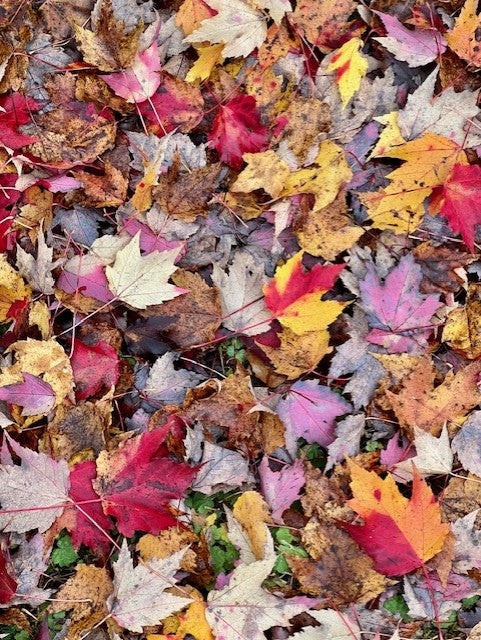
More Than Just a Breakfast Topping
By Zoe Papageorgiou
It’s not just about having extra delicious pancakes. Far from simply providing a delicious topping, sustainable maple syrup production offers a range of positive environmental impacts, contributing to forest health, soil stability, climate change mitigation, and the support of local economies. When done correctly, tapping maple trees for sap does not harm them if sustainable practices are followed. This includes using proper techniques to avoid excessive damage to tree bark and ensuring that only healthy, mature trees are tapped. This responsible approach to harvesting allows sugar maples to thrive, contributing to the overall health and resilience of the forest ecosystem.
Maple forests provide essential habitats for a variety of wildlife species, including birds, mammals, insects, and plants. By maintaining these forested areas through responsible syrup production, we help preserve biodiversity and conserve habitats. Diverse ecosystems tend to be more resilient against pests, diseases, and climate change effects. Healthy maple forests contribute significantly to overall ecosystem stability. The root systems of maple trees help stabilize soil and prevent erosion caused by wind or water runoff. As leaves fall each autumn and decompose over time, they enrich the soil with organic matter—supporting plant growth both above ground (like new saplings) and below ground (benefiting microorganisms) to promote nutrient cycling.
Carbon Sequestration and absorbing CO₂ is one of maple syrup production’s most important contributions. Trees play a crucial role in mitigating climate change by absorbing carbon dioxide (CO₂) from the atmosphere during photosynthesis. Sugar maples specifically sequester significant amounts of CO₂ throughout their lifetimes. Well-managed maple forests can serve as effective carbon sinks—helping reduce greenhouse gas emissions while contributing positively to air quality.
Purchasing locally produced maple syrup supports small-scale farmers committed to environmentally friendly methods rather than large industrial operations known for harmful agricultural practices like monoculture farming or extensive pesticide use. By supporting local economies and choosing pure maple syrup sourced from responsibly managed forests, consumers actively participate in promoting sustainable land-use strategies benefiting both people and planet alike.
In summary, when practiced sustainably, maple syrup production offers numerous environmental benefits—from preserving biodiversity and improving soil health to acting as a carbon sink—all while supporting local economies dedicated to protecting our cherished natural resources.
